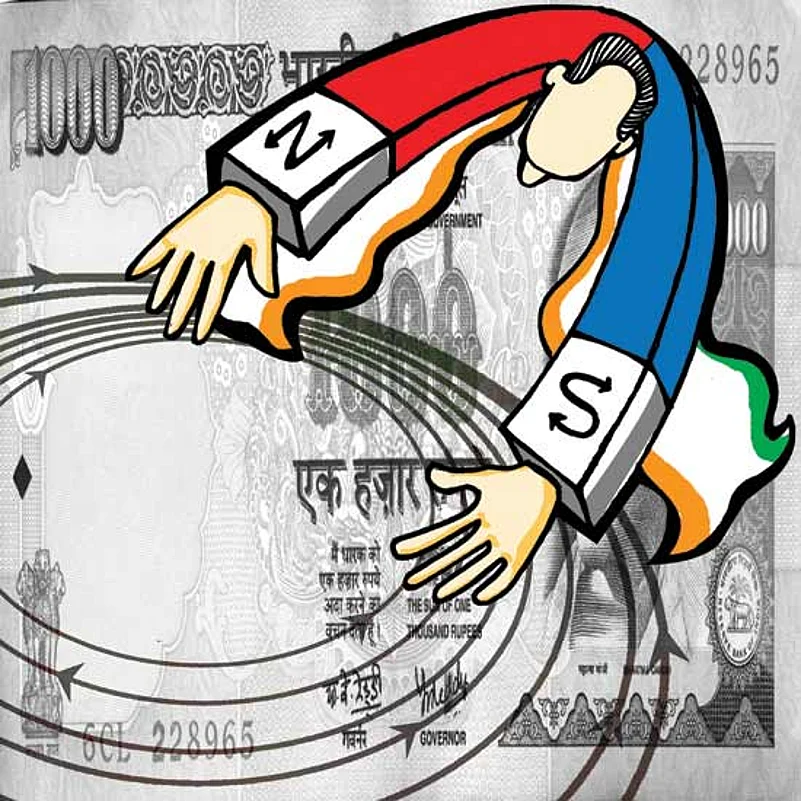Corruption bears its own stereotypes. One such morsel which had floated happily for years was that the south was cleaner than the north. The argument held that to see corruption in all its intensity, one one had to walk through Bihar or UP. The south lived sanitised under the umbrella of this certificate for decades.
The first signs that something was different came with the DMK regimes. According to a senior journalist, the south rationalised corruption, raising it to a new level of literacy. It brought a different logic and rationale to it. It created the idea of corruption as distributive justice. Electoral politics and the battle for equality had created new regimes which saw corruption as a form of musical chairs. The refrain went, “You had your chance, it is our turn now.” Any critique was seen as a form of governance envy. Any attempt to remove a corrupt OBC or Dalit politician was seen as an attack on the community rather than an invocation of the rule of law. Attack Raja and he summons his caste origins as a protective shield. There is an irony to the process because progressive politics and the openness of politics have actually created new compost heaps for corruption.
It is true that bureaucratic systems in Karnataka and Tamil Nadu were more efficient. But that very logic enabled corruption to be much more systematic. One apocryphal story goes that after an electoral defeat, M. Karunanidhi asked a local journalist what would be the level of acceptable corruption to the electorate. Legend attributes to him the idea of sustainable corruption. The concept is not in Brundtland’s monograph but should be seen as a part of any new addendum. The idea is acute and ecological. The metaphor is clear. It brings a new sensitivity, a method to what was till then an arbitrary, over-extractive primary economy. Corruption became orderly. There was a sense of it as an information system. A file was open or closed as an information system depending on the fee paid. This logic worked like a great chain of being through the entire system. Our politicians from Jharkhand are hit-and-run compared to the management models in the south. The beauty of the southern system is that it hybridises the modern and the traditional. Each party would have its bagman, its thug and its investor. The first collected, the second extracted and the third diverted it to create a continuing miracle of the loaves and the fishes. It is a secular language, easily understandable, needing no translation.
Yet corruption is not just in the creamy layer of the DMK leadership, the Reddys, the electoral politicians of Karnataka playing the politics of the last “resort”. It is the only development project with a successful trickledown effect.
Think of simple examples. The first was related to me by an IAS officer. He told me he was doing some work after retirement and he discovered a school where the teacher had not turned up for months but collected his salary punctually. He said there was nothing one could do as the records were immaculate. During the discussion someone pointed out the difference between the north and south. In the south, the system works on paper. Teachers are paid. In Bihar, there are schools where teachers have not been paid for years. It is the difference between a sustainable and extractive form of corruption. In one, corruption is a way of life; in the other, it is constructed as a form of moral luck that accompanies a position in politics.
Let me cite a trivial example. A few years ago at a medical centre for the poor at Chennai, the domestic servant visiting it gives a rupee to the chowkidar as she enters and then with greater gratitude gives another rupee as she leaves to the chowkidar at the exit gate. What the south has done is to take Amartya Sen’s idea of entitlements and adapted it to corruption. A bribe is part of the entitlement of a job. It guarantees a movement from subsistence to sustainability. It is not the absolute power of thugs that corrupts absolutely. It is this infinitesimal location of power as an ecology where the minnows and sharks have created a chain of being where the shark might tax the minnow but both feed on the people like contented piranhas.
The folk paradigm for honesty in the south was Visvesvaraya. Legend has it that the legendary engineer had separated the official and the personal to obsessiveness, carrying an official and a personal pen. The current CM Yediyurappa represents a dissolution of the paradigm, constructing the state as an extension of the family. To Visvesvaraya, character-building, nation-building and dam-building were parallel activities. To the new regimes of the south, such an idea is laughable. The State is only a commons to be shared by a kinship chart. The family has subverted the state into a mining economy that even the Reddys cannot match.
























